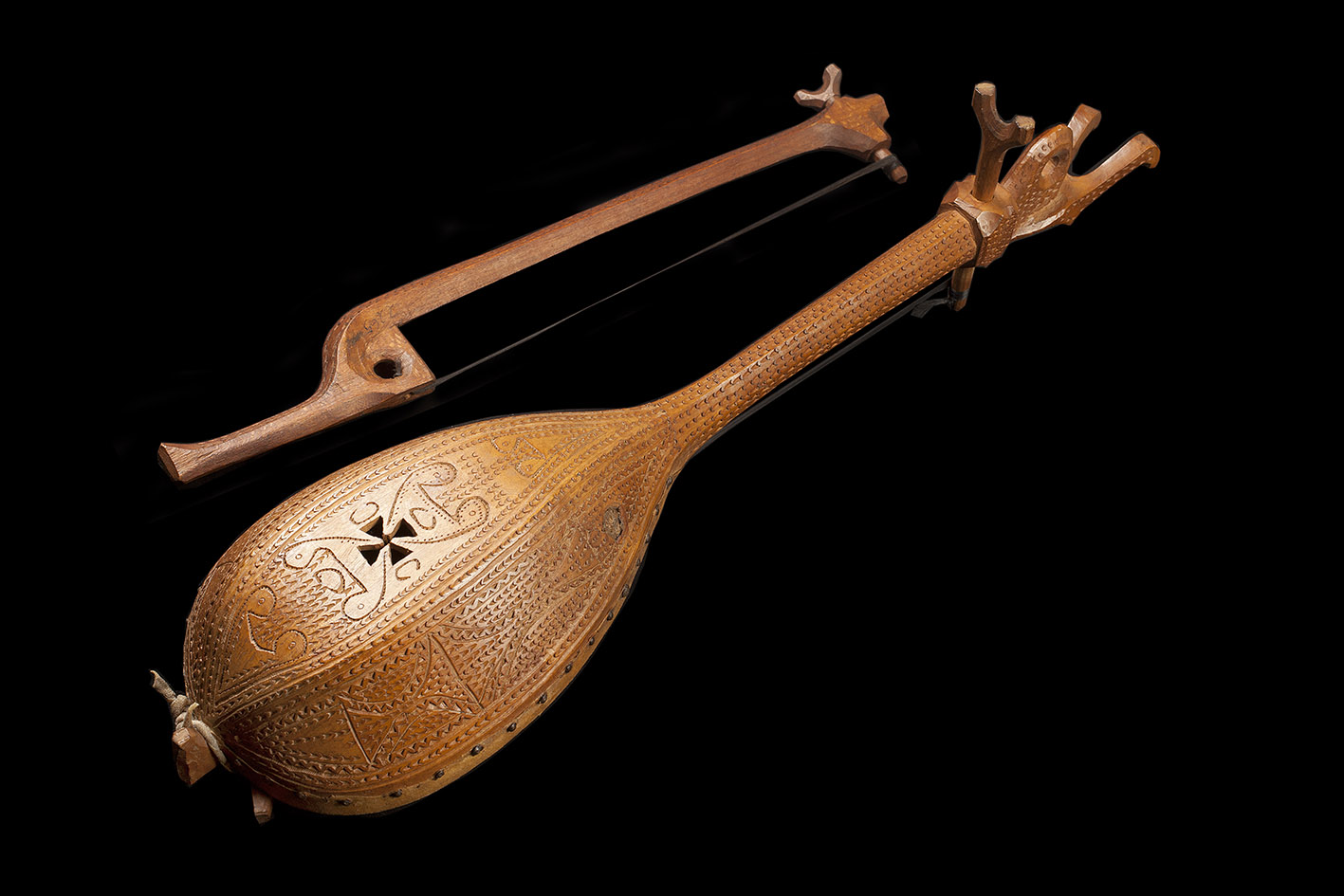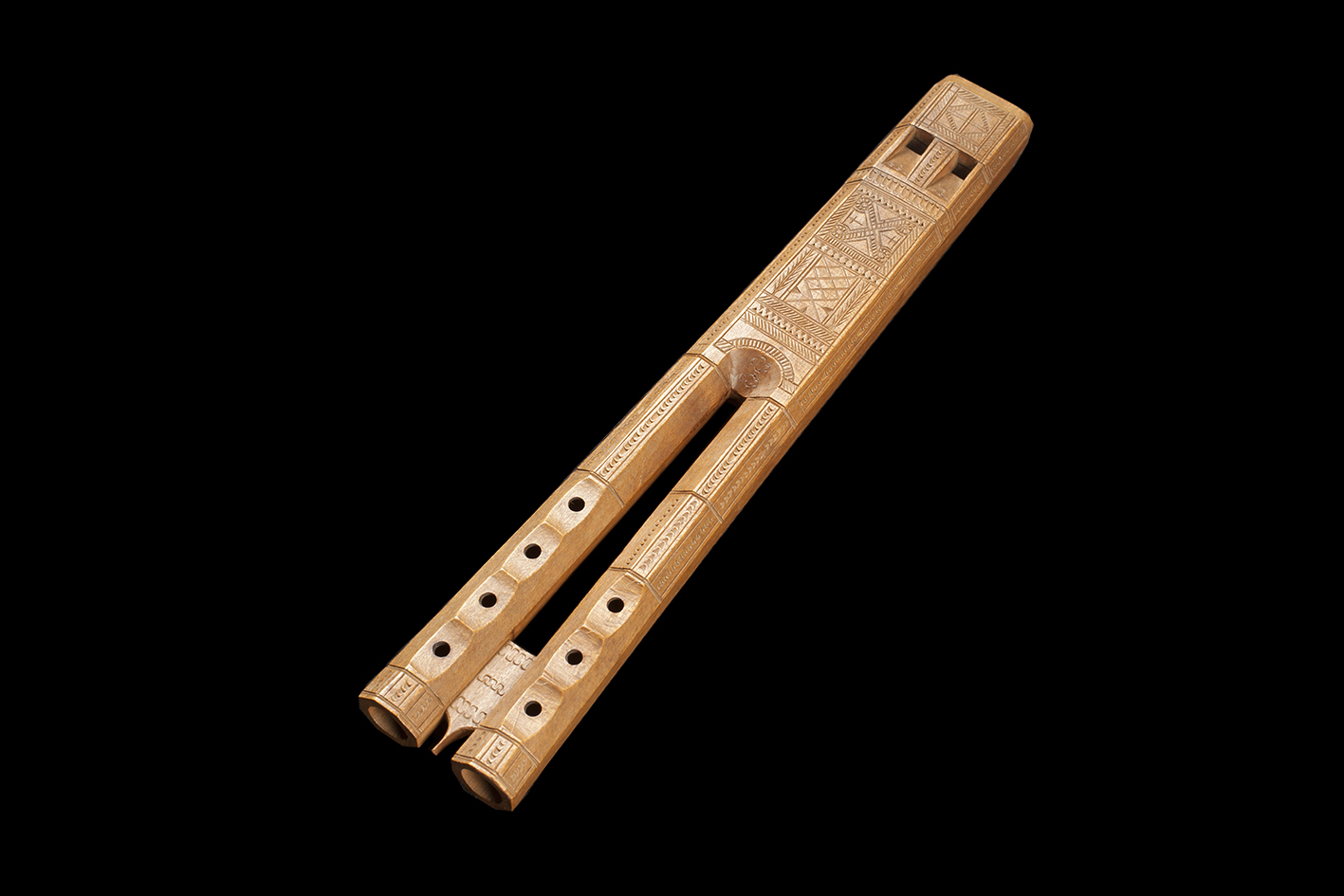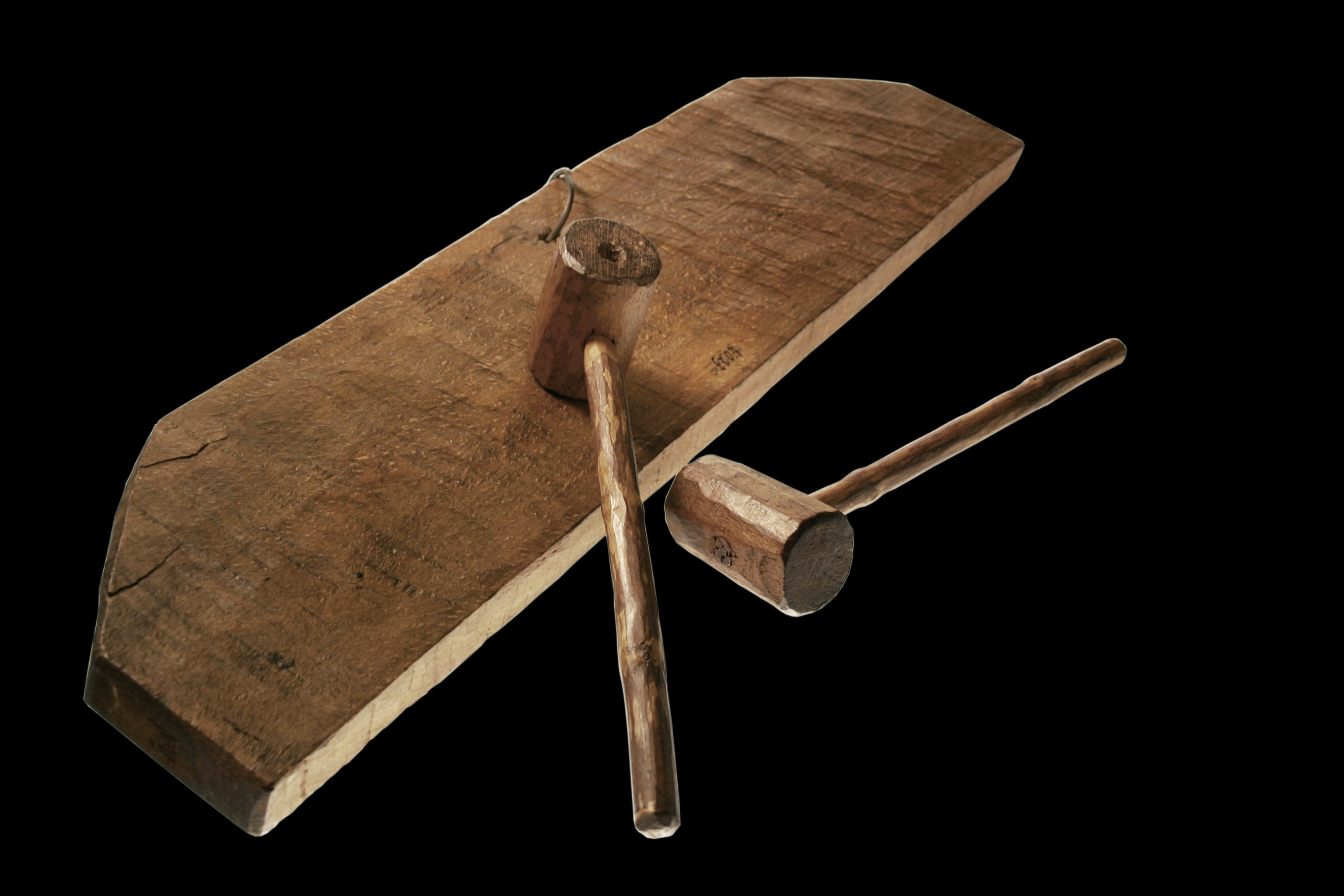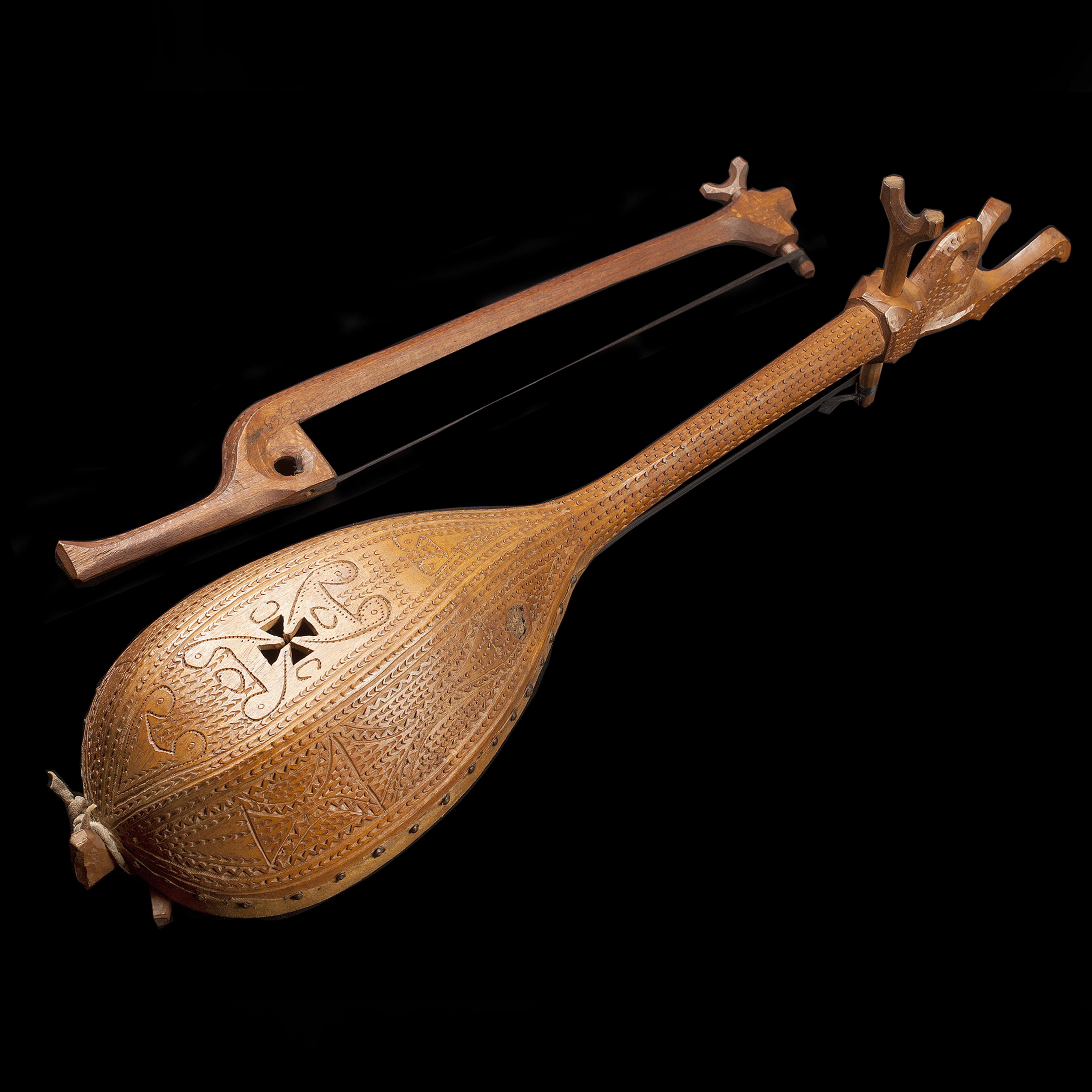
Gusle, Motike, Banja luka, Late 19th Century

Dvojnice, Rekavice, Banja Luka, Early 20th Century

Klepalo, Kosjerovo, Laktaši, Early 20th Century
Traditional Musical Instruments
Musical instruments have always represented a vital element in the cultural traditions of all peoples. They appear in various forms and may be either indigenous or adopted from other cultures. The term instrument derives from the Latin word instrumentum, meaning a device used to produce musical tones. The concept of traditional musical instruments encompasses all sound-producing devices that have been used by communities as part of their traditional practices.
Originally, musical instruments served very different purposes than they do today. They were primarily used as signaling tools or in magical and ritual contexts. Over time, their roles evolved - changes being more pronounced in their usage than in their form. Today, their application spans nearly all aspects of human life, and their development continues.
- CURATOR

Gusle, Motike, Banja luka, Late 19th Century
The collection currently contains 71 musical instrument
The Museum of the Republic of Srpska currently houses a collection of 71 traditional musical instruments. The collection continues to grow through new acquisitions, depending on the Museum’s purchasing capacity and the availability of instruments for purchase or donation. Most instruments in the collection date from the late 19th and early 20th centuries, as evidenced by inventory records. The majority were acquired through purchase, while a smaller number were received as gifts.
These instruments are primarily made of various types of wood, leather, and metal. Most originate from the northwestern region of Bosnia, as confirmed by archival documentation. They are predominantly handcrafted, a fact clearly visible in the workmanship of the exhibits. The makers were mostly rural artisans, who were often also the performers.
The classification of traditional musical instruments
The classification of traditional musical instruments in this collection follows the system developed by German ethnomusicologists Kurt Sachs and Erich M. von Hornbostel, which remains widely accepted today. This system is based on the material from which the sound originates and the method by which the sound is produced.
Accordingly, the instruments in the Museum's collection are categorized into four groups:
- Collection of Idiophonic Musical Instruments
- Collection of Membranophonic Musical Instruments
- Collection of Chordophonic Musical Instruments
- Collection of Aerophonic Musical Instruments
Vlado S. Milošević Collection
Life and Legacy
Vlado S. Milošević - educator, conductor, ethnomusicologist, composer, and full member of the Academy of Sciences and Arts of Bosnia and Herzegovina - left an indelible mark on the musical culture of this region through his lifelong dedication and work. The significance of his contributions is reflected in numerous contemporary writings and in the extensive collection of professional and civic awards he received throughout his prolific career.
Milošević dedicated his entire professional and personal life to music. He collected folk melodies and documented over 2,000 tunes, which he published in four books, two booklets, and two scholarly studies. He authored numerous works in the fields of ethnomusicology and musical folklore. His work was studied and evaluated by scholars such as Dragoslav Dević, PhD. Milošević deepened his understanding of composition through self-study, and his creative output was strongly influenced by traditional folk music.
He also composed for male, female, children’s, and mixed choirs. “Intertwined with his spirit and mentality, imbued with meaning, his choral works (an opus of 253 smaller and larger compositions) emerge from an inexhaustible cultural heritage, liberated from the impersonal constraints of modern conceptions.”
His most notable orchestral and instrumental works
- Suite for Oboe and Strings (1949)
- Bosnian Suite for Strings (1950)
- Krajina Rhapsody (1951)
- Concerto for Double Bass (1951)
- Symphonic Poem – From the Mountain (1957)
- Violin Concerto (1961)
- Dramatic Symphony (1967)
- Divertimento (1970), among many others.
In addition, he composed approximately 120 solo songs on texts by prominent poets, 340 chamber works, a smaller number of theatrical compositions, and the opera With the Badger on Trial, based on the satire by Petar Kočić, with a libretto by Ranko Risojević.
Vlado S. Milošević bequeathed nearly his entire legacy to the Museum of the Republic of Srpska for preservation and continued use. The collection includes musical scores, audio tapes, photographs, decorations, plaques, awards, letters, select personal furnishings, and various personal artifacts.
